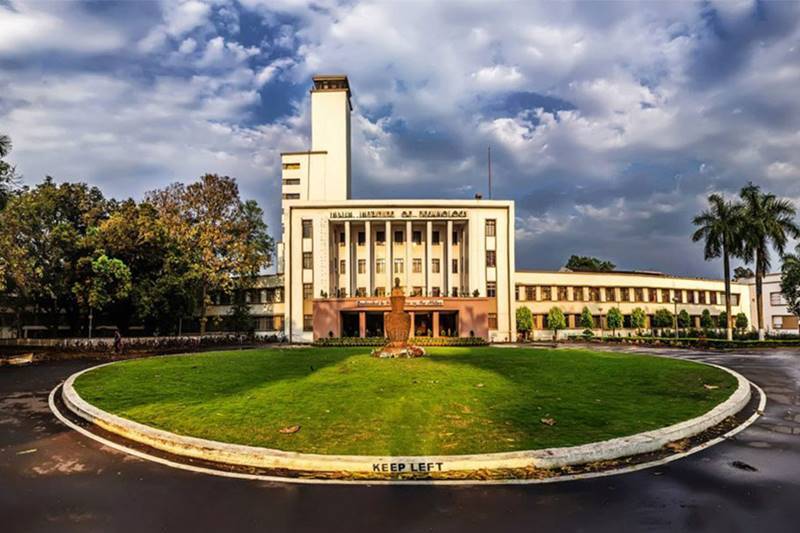“Where society is already well-knit by other ties, marriage is an ordinary incident of life. But where society is cut asunder, marriage as a binding force becomes a matter of urgent necessity.” – B. R. Ambedkar (1936)
Marriage: the grand golden shining trophy for those who cross that final red finish line after struggling across the fields, the harbinger of happiness and adulthood that every individual must strive to. The great big Indian Wedding, the perfect wedding dress, the perfect ceremony and a flamboyant declaration of love from the top of a sunlit mountains – these are all commonplace notions that have been ground in stone.
Marriage is supposed to be a union between spouses that both legally and morally creates rights and obligations among persons who choose to mark their emotions for each other with such a certainty. When did marriage become a finality? The idea of marriage being an eventuality that everybody will inevitably drift towards is one that has clutched onto every thread in society. It has slowly inched its way into our bedrooms and childhoods, conditioning us to believe in it as the ultimate goal of our endeavours.
Marriage is seen as an eventuality that everyone WILL INEVITABLY drift towards.
After all, it isn’t in isolation that children are taught to prepare themselves for it. The cliches that are often knocked around are: “If you don’t learn to cook properly, what will you do when you get married?”, “Don’t be so boisterous, who will marry you?”, “Don’t you want to look pretty for your marriage?”. Of course, the most frightening of all encounters would be when well-meaning relatives walk upto you at a cousin’s wedding, nod a knowing smile at you and say, “So, are you next?”. Instances like these make marriage seem like an inevitability that demands mandatory conformity from each and every person. Or better yet, “How will I have grand kids?” (Yeah, you’ve heard that one).
Family forms one among a melange of factors that contribute to this phenomenon. Parents often want their girl children married off so that they are no longer their burdens (kanyadan – gift of the maiden). Marriage is a means to maintain the patriarchal family hierarchy with the father/oldest male member at the top (more often than not, except in very few matriarchal societies).
The State is party to the grand scheme of maintaining the necessity for marriage: The Mukhyamantri Kanya Vivah Yojana (where the inhumane virginity tests were conducted), whose objective statement was “The marriage of a girl is a big worry for a poor family” is telling of the fact that marriage of women is viewed as an obligation, a mandatory ritual that everybody will eventually go through no matter what. The scheme literally meant to “give away the girl”, place your liabilities on the government. The shifting of burdens isn’t enough, but the eradication of burdens on a whole.
Also read: Reading Between The Lines: An Analysis Of The Mukhyamantri Kanya Vivah Yojana
But it is only a certain type of marriage that is deemed honourable. What image pops into your mind when you think of a “family”? You automatically think of a man, woman, and one/children. But family is so much more than this nuclear heteronormative setup that we have grown accustomed to. Family can include many parents, spouses of the same sex/transgenders, spouses who do not have children, the roster is endless. It is this conventional image of a family that we must challenge.
Marriage is a means to maintain the patriarchal family hierarchY.
Legitimate sexuality that assures procreation is the only type of sexuality that is endorsed (while also being strictly policed) to ensure that essential identities continue to exist, those of caste, colour, religion. Homosexual desire is seen as counterproductive to this natural order. Even heterosexual desire must flow in the right directions. Too many years of marriage without having a child will invite “concern” from members of your family and community about whether “everything is all right”. Refusals to participate in the business of the reproducing society are met with strong admonishments.
It is only a certain type of marriage that is deemed honourable.
When someone tugs at the carefully produced “natural order” of society by refusing to conform to acceptable behaviour, the order goes berserk. Overstepping caste boundaries is one such instance of tugging: honour killings (which has seen a 792% spike in 2014). It is more acceptable for you to marry a complete stranger, no matter how deplorable, so long as the person if from your caste (or maybe even a higher caste). A Dalit man was hacked to death for marrying a woman from an upper caste. Who hacked him to death? Was it members of her community who outraged against him for overstepping his bounds as a lesson to others who try to sully their good waters?
As we fight for equality of the castes in marriage, there are increasing means in society to seek out members of your own community for marriage, hardening the boundaries set out for nuptials. Videos such as the one shown above tell you that it is all right if you want to stick to your community for marriage, and gives you a means to go about it. While a person wedding another from their own community can be a choice for their own convenience, it becomes a barrier (an imminent one, at that) when it becomes the only criteria for marriage. Portals like Shaadi.com and Bharat Matrimony have segregated sections depending on your community. Community is often just a euphemism for caste, creed, religion and colour. There, now that we’ve pulled the mask off, where do we stand?

ScoopWhoop, Marriage Ads
Media and pop culture have played no small role in propagating this institution. Movies, romantic novels, advertisements, they all tell you that you will find your soulmate, that there is a perfect guy for you out there who will get on his knees (hey, another gender role!) and ask you to marry him, and you will have a big fancy wedding in a beautiful dress and ride off into the sunset. The women who are unmarried are often portrayed as the sad, lonely, “career driven” types who is just craving a person to marry.
Does that mean that if I do not get married, I will be denied the happiest day of my life?
The natural conclusion of any sort of “love” is a wedding. There have rarely been movies about a woman who does not find a man, where the movie is more than just a love story but about her life beyond it. The common notion that the wedding is the happiest day of your life rings a bell. Where did that notion come from, and how could that hold true for everybody? Does that essentially mean that if I do not get married, I will be denied the happiest day of my life?
“If a girl is ugly and handicapped, then it becomes very difficult for her to get married.“ Schools, the textbooks we read from and the education we are exposed to influence us. Lines like these in textbooks propagate the notion that you are eventually supposed to get married and if you don’t, there’s something wrong with you.
Walking through the sheets of life is much less filtered when you are married. When you are an unmarried couple, your life is scrutinized through a very minute lens. Instances of moral policing of couples who are unmarried exposes the double edged sword that operates to preserve the sanctity of marriage. The rule is clear: if you are not married, you do not have the right to fall in love, let alone express it in any manner.
Who sets out the rules for whom to love, and how much, and how?
The episode of a group owing allegiance to the Shiv Sena caning couples in Marina Drive in Kerala while the police stood mute and watched is a glaring indication of the worrying nature of policed sexuality. Where does this end? Who sets out the rules for whom to love, and how much, and how? There are ways in which you are rewarded for being married. There have been a plethora of instances where unmarried couples have been refused hotel rooms, where they’ve been chastised and punished for booking rooms while unmarried, and for having pre-marital sex. This has been pushed to the precipice of picking up and charging unmarried couples in hotels together with “public indecency”. Housing societies often refuse to rent out to bachelors as it would cause too many “problems”. If they do rent it out, they’re told to keep it clean: no alcohol and definitely no sex.
Where independent persons have not gotten married “on time”, families quickly put together an arranged marriage and force the hand of the “single” person to “take the plunge” before it is too late. This is when arranged marriages become destructive – when you take away the inherent agency people should have and force it upon them. The harm of marrying a stranger is considered lesser than the harm of marrying too late/not marrying at all, a dishonorable act. Where live-in relationships and divorcees are still frowned upon in our society, it is for us to question the institution of marriage as a means and end in and of itself.
You are no less a feminist for having made that choice, as much as you are no less a respectable person for having decided not to marry.
Marriage can be a beautiful choice of persons coming together to declare their companionship to the world. When forced, this very bond can turn into a smouldering rope that forces people together and eventually leaves behind blisters beneath the happy facade of a happy marriage. So, yes, it is a choice. You are no less a feminist for having made that choice, as much as you are no less a respectable person for having decided not to marry. As we ride off into our happily ever afters, remember to check if the cart was made by patriarchy and if the passengers are of your own choosing. And never forget, the personal is political.
Other References
About the author(s)
Shilpa Prasad is a law student who loves books, poetry and her guitar.




